- Home
- Tony Parsons
Catching the Sun Page 4
Catching the Sun Read online
Page 4
‘Gypsies,’ I said. ‘Sea gypsies.’
‘Thieves,’ said Mr Botan. ‘Beggars. Tramps. Some chao ley are not so bad. Almost like Thai. Almost. They get registered. We call them Mai Thai – new Thai. But these are moken. Like oken – sea water. Same name, almost. They don’t even want to be Thai, these moken.’ He clearly took it personally. ‘Anyway,’ he said, looking back at the turtle. ‘They are more Burmese than Thai. Anyway. Mai pen rai. Never mind, never mind.’
The rough boat was being dragged out of the water. There was a man and two children. A girl in her mid-teens and a younger boy who, now I looked at him again, was more like a tiny man than a child. He was not tall but he was broad and the way he moved as he dragged the canoe further up the sand suggested the kind of workhorse strength that you only get from years of manual labour.
I looked at Rory and Keeva with the turtle. They were keeping a deferential distance as the turtle started to dig into the sand, moving its flipper-like feet to dig a hole.
As the feet fluttered in the sand, it didn’t look like very effective digging. But a hole somehow began to appear, and the head and shell of the turtle became covered in sand, giving it a carefree, oh-I-do-like-to-be-beside-the-seaside air.
The sea gypsies, the chao ley, were slowly coming up the beach towards the turtle. They were different from any Thais that I had ever seen – shorter, stockier and darker, and yet their hair was streaked with gold, as if they had just emerged from a fancy hairdressing salon rather than the Andaman Sea.
They stopped some distance from the turtle, kicking their bare feet in the sand, not looking at us, and now ignoring the turtle. At first I thought they were beachcombing. But they were waiting.
Mr Botan watched them with mounting anger. To us they were colourful travelling folk. To him they were a bunch of thieving, peg-selling pikeys.
‘Look!’ Rory cried.
The turtle had begun to lay its eggs. We edged closer and so did the chao ley.
‘These sea beggars,’ Mr Botan said to me. ‘They follow the turtle. They know she will lay her eggs.’
Rory’s eyes were pleading. ‘They’re not going to hurt her, are they?’
I stared at the chao ley. They didn’t seem as though they were going to give her a saucer of milk. The three of them were watching the turtle now. The tough-looking little boy. The girl, who was perhaps sixteen. And the old man. Watching the eggs emerge. If their skin had been one shade darker then it would have been black.
The turtle laid five eggs and then seemed spent. Keeva was disappointed.
‘Is that it?’ she said. ‘Is that all the eggs? I thought there would be – I don’t know – millions.’
But Rory was in a fever. I really believe it was the best day of his life.
‘They don’t lay many eggs in Phuket,’ he said to his sister, patient but breathless, grateful for seeing this vision. ‘Because it’s warm all year round, see? So they don’t have to worry about the weather. But the eggs are left unprotected. They’re small and soft. The eggs are. Predators eat them up. Rats. Lizards.’ He looked at the chao ley. ‘People.’
The turtle was dragging itself back to the sea. The old chao ley passed it and walked swiftly to the eggs. He picked one up, examined it briefly, and started back to his boat.
‘I can’t believe that’s legal,’ Tess said.
Mr Botan spoke harshly to the chao ley and began following him.
Hefting the egg, the old man gave him a mouthful back.
Mr Botan stopped, shaking his head. ‘He says he only takes one, out of respect for the mother. But he says the rats will eat the rest anyway.’
Rory whimpered. Tess looked at me, as if I might somehow rescue our day out. But all I could do was shrug. I wasn’t going to get in a punch-up with some old sea gypsy over a turtle’s egg.
‘Sounds sort of reasonable,’ I said.
Rory walked warily to the sea turtle, his shoulders sunk with anguish. We all followed him. The tough-looking chao ley boy was squatting on his haunches watching the turtle as it crawled and clawed its way to the sea. He ran one curious hand across the turtle’s rock-like shell.
Rory began hyperventilating.
‘He shouldn’t touch it,’ Rory said. ‘Excuse me? Oh, excuse me? You shouldn’t touch it. I don’t think he speaks English. Tell him not to touch it.’
But the young sea gypsy was already up and off towards their boat, pausing only to scoop up the frisbee that our children had discarded in the sand. He looked at it as if it was a shell, and wandered down to the shore, idly tapping it against his thigh.
‘Hey,’ Keeva called, going after him. ‘That’s not your frisbee.’
The boy turned to face Keeva. She held out her hand and he took a step back, holding the frisbee above his head, although he was a couple of inches shorter than her.
Then Tess was there.
‘Do you speak English?’ she asked with a friendly smile, and in that simple question you could see that she had been a great teacher.
She had been sick of the school at the end – the lack of discipline, the lack of ambition, the parents who owned more tattoos than books. But the way she looked at that hard little child who was stealing our frisbee made me see that she had loved her job once, and maybe missed it more than she let on.
The boy looked at Tess with his fierce feral eyes.
‘I am an engineer,’ he announced, his voice thin and reedy. ‘I am from Germany. I am from Australia. What time is the train to Chiang Mai? Is there anything cheaper? I want something cheaper. I am a student. I am an engineer. I am Mr Smith. I am Mr Honda from Tokyo bank. Take me to a doctor. My stomach is bad.’
Tess clapped her hands and laughed.
‘That’s very, very good,’ she said. ‘What’s your name?’
But he stared at us silently, bitterly, and it was his big sister calling to him from the boat where she waited with the old man who revealed his name.
‘Chatree!’ she called. ‘Chatree!’
‘Look, you can play with us if you want,’ Keeva told him. ‘But taking something that doesn’t belong to you is basically not cool.’
But the boy had no time for play.
He ran off to join his family. They were getting back in the boat, the man wrapping the egg in some sort of filthy blanket.
I picked up the red plastic frisbee as they pushed off. The turtle swiftly disappeared below the waves, but we watched the canoe for a while longer, the three dark figures bobbing up and down on the empty sea until they were round the bay and out of sight.
‘They wander still,’ said Mr Botan, making it sound as if it had always been that way in the past, and it would be that way forever.
5
We walked back up the green hill to home and every step of the way the sound of Rory’s crying mixed with the evening sigh of the sea.
‘Stop crying,’ I told him, and it came out far too harsh, but tears in my family always filled me with a wild panic.
Keeva threw a thin protective arm around her brother’s shoulders.
‘Crying doesn’t change anything,’ I said, more gently now, although I knew the damage had been done.
‘I can’t help it,’ he gulped. ‘I know it doesn’t do any good. I know that. But I can’t stop.’
‘Why do you cry?’ asked Mr Botan.
He did not know Rory like the rest of us. We knew exactly why he was crying.
‘The egg,’ Rory said, a tear running down one lens of his glasses. ‘The mother. The baby.’
Tess looked at me and something passed between us.
‘Why don’t you boys go to see Daddy’s friend?’ she said, putting an arm around Rory, now smothered in the limbs of his sister and mother. ‘The one with the – what is it?’
Rory’s wet eyes were wide. ‘The gibbon?’ he gasped. ‘The man with the gibbon?’
‘That will cheer you up,’ Tess predicted, and while I got the Royal Enfield out of the shed, she dried his eyes, wiped his nose
and strapped him into a crash helmet.
Jesse was standing outside the front door of his apartment. His shirt was ripped open and his pale features were slick with sweat. There were fresh scratches on his forehead. He stared at Rory and me, as if trying to place us.
‘Yes?’ he croaked.
I was silent for a moment.
‘This is my boy,’ I told him. I waited. Nothing happened. ‘You said we could come round,’ I reminded him.
Jesse looked at us wildly.
‘To meet the gibbon,’ Rory added, his eyes blinking behind the glasses. He chewed his bottom lip. I had never seen him so excited.
Behind the shut door we heard the sound of things being smashed.
‘Ah,’ said Jesse, attempting to smile at Rory. ‘Of course. Your little boy. The nature lover. The lad who likes monkeys.’
I looked down at my son and watched his mouth tighten.
‘Gibbons are not monkeys,’ he said quietly, then shot me a look – Who is this fool? ‘Gibbons are the fastest and most agile of all tree-dwelling mammals.’
The sound of breaking glass came from within the flat.
‘Yeah, well,’ Jesse said, passing a hand through his sweat-soaked white hair. ‘Travis – my tree-dwelling mammal – is having a bad day.’ Furniture crashed against the door and we all jumped back. Down the hall a neighbour stuck her head out of her door. A woman in her forties, Thai, frowning at the crowd of foreigners standing outside the noisy apartment. ‘Fine, all fine, all under control,’ Jesse laughed. ‘Sorry about the noise, we’ll keep it down.’
The neighbour went back inside shaking her head and no doubt muttering about bloody foreigners.
‘If it’s inconvenient …’ I said.
My son glared at me – Don’t say that to him. Amazing how much your child can communicate without saying a word.
‘It’s actually really inconvenient,’ Jesse said. ‘Maybe you boys could come back some other time.’
Sounds from inside the flat, although further away from the door. Crash. Bang. A distant screech.
‘How old is Travis?’ Rory asked.
Jesse shook his head. ‘Five, they said in the bar. I got him in a bar. Rescued him, sort of. From a life of depravity. Five or six.’
‘That’s not a bad day,’ my son said. He sighed with the kind of weariness that only a nine-year-old can call upon. ‘That’s sexual maturity.’
Jesse laughed. I had to smile.
‘What do you know about sexual maturity?’ Jesse said.
Rory narrowed his eyes. ‘What do you know about gibbons?’ he said.
It was all silent inside the apartment now. I took my son’s hand but he pulled away.
‘But I want to see him,’ Rory said. He looked up at me. ‘Can we see him?’ He looked at Jesse. ‘Please, sir, may we see your gibbon?’
Jesse listened at the door. Nothing. ‘He’ll take your eyes out, kid,’ Jesse said. ‘He’s gone buck wild in there.’
‘That’s just sexual maturity,’ my son said. ‘They get to that age – five or six in gibbons – and they want to mate with you or fight with you.’
‘Sounds like chucking-out time on a Saturday night,’ Jesse said. We both looked at Rory for a moment, wondering what to do next. Then my son opened the door and we went inside.
It was a single guy’s flat above Hat Surin and it was a mess. An even bigger mess than usual, no doubt. There were smashed plates all along the hall. A stain on the wall. Some kind of food smeared across the ceiling.
‘Excuse the mess,’ Jesse said.
The gibbon – Travis – was in the kitchen, having a beer. He squatted by the sink, glugging down a can of Singha, staring thoughtfully around the little room with those huge black eyes.
‘He likes his brew, does old Travis,’ said Jesse, and laughed shortly. ‘He likes a beer at the end of a long hard day of scratching his arse and smashing up my flat.’
‘No,’ said Rory, and I didn’t need to look at him to know how hard he was trying not to cry. ‘He has just forgotten,’ he said. ‘He’s just forgotten, that’s all.’
Travis looked at us out of the corner of his eyes, and I was suddenly very scared of him, and thought how stupid I was to bring my boy in here.
‘Forgotten what?’ Jesse said.
‘Forgotten that he’s a gibbon,’ Rory said. ‘He just doesn’t know he’s a gibbon any more. Can’t you see? He doesn’t understand how to act like a gibbon. Somebody probably stole him from his family when he was a baby.’
The three of us watched Travis slurping his Singha.
‘A beach photographer had him on Hat Patong,’ Jesse said. ‘Then they got him for the bar.’ We watched the gibbon contemplate his soft brown fur, pick an insect from it, pop it into his mouth. ‘But I don’t know where the photographer got him from,’ Jesse said.
The pink cowboy hat was gone, but Travis still looked like a creature of the No Name Bar, like something from the Bangla Road night. He rolled his shoulders and contemplated his beer and narrowed his eyes, as if sizing up his opportunities, as if ready for action.
‘They shouldn’t keep an animal like him in a bar,’ Rory said. ‘That’s so wrong. They shouldn’t keep any kind of animal in a bar. They do it for fun and it’s so wrong.’
I looked at my son but I heard my wife. Rory had the clear-eyed goodness of Tess about him. Both of them could look at something and tell you if it was right or wrong, even if you hadn’t asked. I loved them for it, though it frightened me.
The gibbon stared at us, as if suddenly aware of our presence.
‘Settle down now, Travis,’ Jesse said. ‘We’ve got guests.’
Travis had soft brown fur with a snow-white trim around his black face. He had those perfectly round eyes, moist and black and bottomless. They seemed full of what I can only describe as pain.
Jesse picked up an open packet of cheese puffs and held them out to Travis. The gibbon snatched them from his hand and began stuffing them into his mouth. Flecks of orangey-yellow cheese puffs sprayed out of either side.
‘He loves his Cheesy-Wheezy Puff-Puffs,’ Jesse said quietly. ‘They always calm him down.’
Rory did not take his eyes from the gibbon by the sink.
‘Gibbons eat some insects and small animals such as tree lizards, ants, beetles, butterflies, crickets, stick insects, maggots, Asian leaf mantis,’ my son said. ‘Things that gibbons don’t eat include Cheesy-Wheezy Puff-Puffs.’
Travis wiped his mouth on the back of his arm and picked up a bread knife. With one bound and then another he was across the kitchen and in our faces. His teeth were bared. The knife was in his hand and the knife was at Jesse’s throat.
Then Rory reached out and placed his hand lightly on the gibbon’s arm.
The gibbon froze.
He stared with shock at the small dimpled hand of the child resting on the brown fur of his left arm, just below the elbow. For a long time, neither of them moved. Then the gibbon pulled away, totally subdued, moving very slowly and very gently as if afraid a sudden movement would disturb my son. None of us moved. But the gibbon hopped across back to the sink where he paused to examine the nails of his fingers.
‘Where the bloody hell did you learn to do that?’ Jesse asked my son.
Rory did not bother to reply but I already knew the answer. He had read it in a book.
‘I keep thinking we’re going to be struck down,’ Jesse said, looking at me.
‘What?’ I said, wrapping my son in my arms.
‘I keep thinking that some lightning bolt is going to strike us,’ Jesse said. ‘To punish us for the way we live here. For the lies we tell. For the rules we break. For the things we do.’
‘Shut up, Jesse,’ I told him, annoyed. ‘This is crazy talk.’
‘I know I’m stupid,’ Jesse said, looking at Rory now. ‘I know I did a bad thing bringing him here. A stupid thing. But he was drinking beer till he puked in the bar and he didn’t like the flashing lights and they had filed d
own his teeth and they were giving him stuff to make him stay awake until closing time. And he doesn’t like being made to wear a hat.’ Jesse hung his head. ‘And I thought it would be a bit of company.’
‘No,’ my son said, and he placed a hand on Jesse’s arm, as he had on the arm of the gibbon. ‘You think you did a bad thing.’ He smiled up at us and for a second it was as if he was the grown-up. ‘But don’t worry,’ Rory said. ‘I think you found him just in time.’
6
Up in the ring, Jesse was in trouble.
He was limping, and his mouth was twisted with pain, a thin stripe of blood on his lower lip.
He towered over the small Thai youth in front of him but every time Jesse stepped forward, the Thai kicked him with his shin. Always the same kick. The gleaming thin brown shin lashed out hard and high on Jesse’s plump milky thigh, and the pain in my friend’s face registered as clearly as if he had been given an electric shock.
Farren leaned into me and shouted something in my ear, but I didn’t get a word of it. Near midnight the noise in a Muay Thai stadium is deafening. There’s a live band, tucked up somewhere high in the rafters, so hidden that they could be some kind of mad radio, and as the night goes on they build in intensity, their pipes, drums and cymbals – you notice the clash-clash-clash of the cymbals most of all – sounding like a commentator who has lost control, echoing and encouraging and urging on the violence in the ring. I had never heard such a racket. Farren had to put his arm around my shoulder and pull me closer to make himself heard.
‘Look at that,’ he shouted. ‘There’s the reason why the Thais were never colonized – right there. There’s the reason why, out of all the nations of Asia, only the Thais were never ruled by the white man from the big bad West. Because they have a mean streak.’
Directly above us, Jesse reeled on the ropes, the sweat flying from his body. The Thai kid seemed to be moving in for the kill. I found that I was shouting Jesse’s name. It did no good.
On the other side of Farren, I saw the Russian jump up and laugh. I had driven him from the Amanpuri resort in Surin all the way south to the stadium in Chalong, his big meaty arms wrapped around my waist all the way. The Amanpuri was the most exclusive hotel on the island but, unlike a lot of clients I was sent to pick up, the Russian didn’t complain about being picked up by bike.

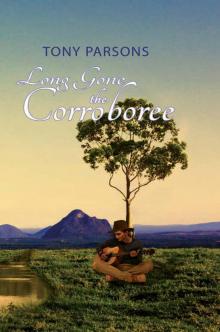 Long Gone the Corroboree
Long Gone the Corroboree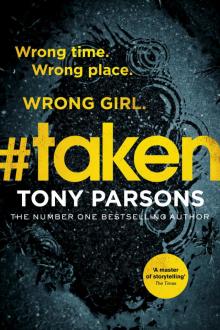 #taken
#taken The Family Way
The Family Way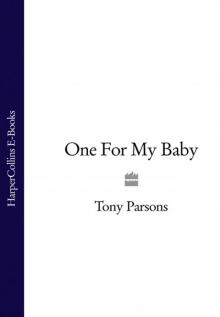 One For My Baby
One For My Baby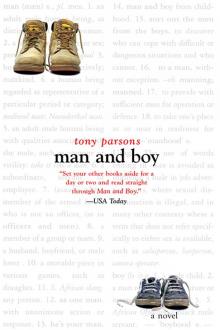 Man and Boy
Man and Boy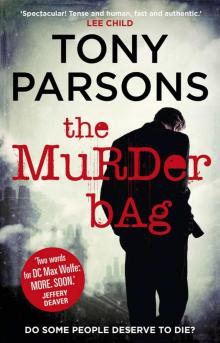 The Murder Bag
The Murder Bag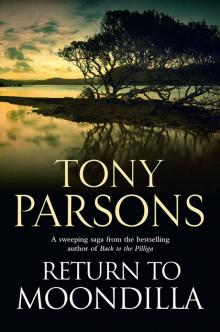 Return to Moondilla
Return to Moondilla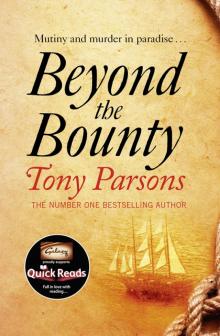 Beyond the Bounty
Beyond the Bounty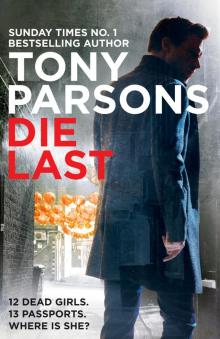 Die Last
Die Last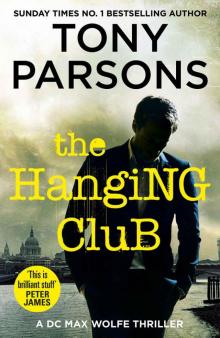 The Hanging Club (DC Max Wolfe)
The Hanging Club (DC Max Wolfe)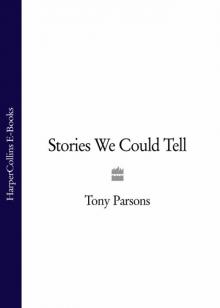 Stories We Could Tell
Stories We Could Tell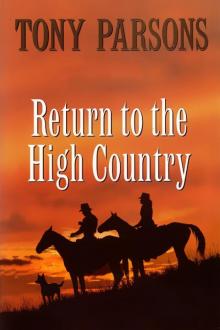 Return to the High Country
Return to the High Country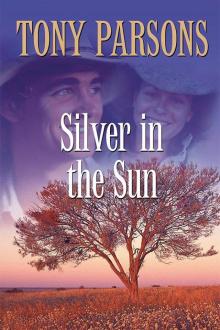 Silver in the Sun
Silver in the Sun My Favourite Wife
My Favourite Wife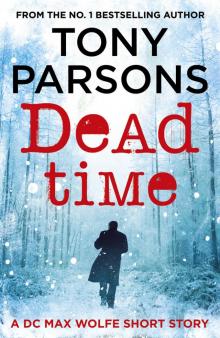 Dead Time
Dead Time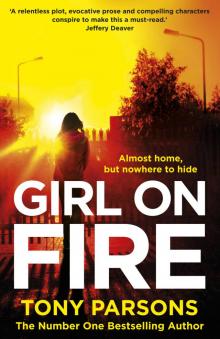 Girl On Fire
Girl On Fire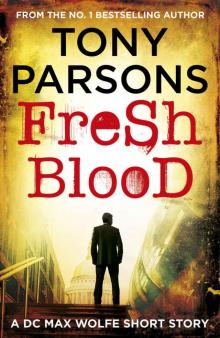 Max Wolfe 02.5 - Fresh Blood
Max Wolfe 02.5 - Fresh Blood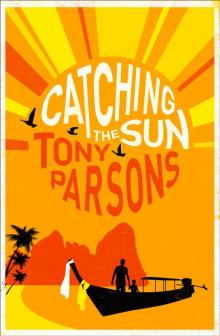 Catching the Sun
Catching the Sun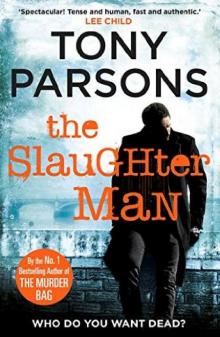 The Slaughter Man
The Slaughter Man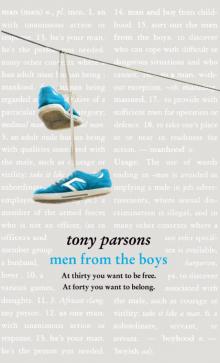 Men from the Boys
Men from the Boys Man and Wife
Man and Wife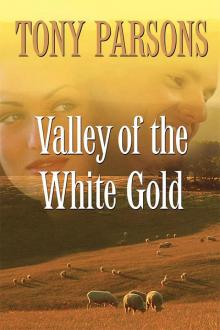 Valley of the White Gold
Valley of the White Gold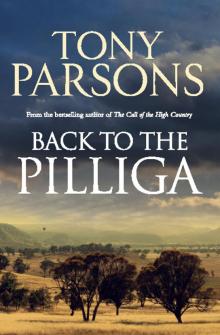 Back to the Pilliga
Back to the Pilliga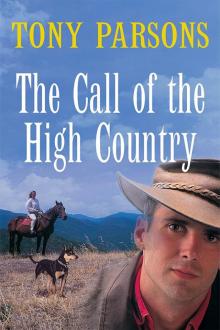 The Call of the High Country
The Call of the High Country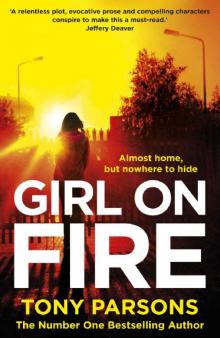 Girl On Fire_DC Max Wolfe
Girl On Fire_DC Max Wolfe